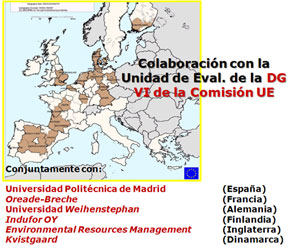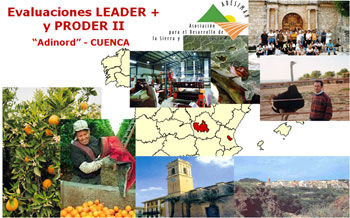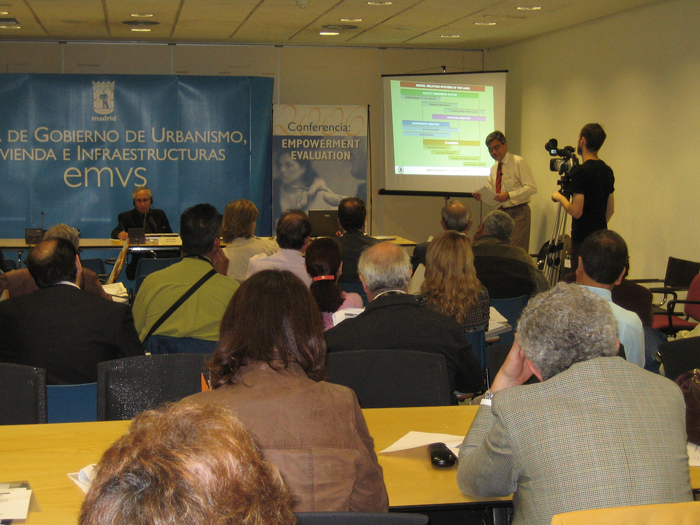EVALUATION OF THE IMPACT OF THE COMMUNITY MEASURES ON SET-ASIDE
El presente informe de evaluación incluye la parte correspondiente a España del trabajo de Evaluación del impacto de las medidas comunitarias relativas a la retirada de tierras. Dicho trabajo se compone de cinco documentos: cuatro regionalesy el informe nacional. Los informes regionales se corresponden con las Comunidades Autónomas de Castilla y León, Castilla La Mancha, Aragón y Extremadura. Estas cuatro regiones incluyen más del 70 % de la superficie COP Nacional. El plano de localizaci ón de las cuatro regiones aparece en el anejo 2 del informe nacional. El informe nacional constituye un documento resumen de los cuatro informes regionales a la vez que incluye algunos datos agregados nacionales.
EVALUATION OF THE IMPACTS OF MEASURES IMPLEMENTED UNDER THE PROGRAMME OF THE OPTIONS SPECIFIC TO THE REMOTE AND INSULAR NATURE OF THE CANARY ISLANDS (POSEICAN)
Empowerment Evaluation
EMPOWERMENT EVALUATION: DESARROLLO DE LA MUJER EN LAS COMUNIDADES RURALES DE PUNO Y VALLE DE CAÑETE (PERU)
EMPOWERMENT EVALUATION: UN INSTRUMENTO QUE CONTRIBUYE A LA REDUCCION DE LA POBREZA EN LA ZONA DE SARAGURO (ECUADOR)
Los indicadores socioeconómicos clasifican a la zona de Saraguro como una de las más pobres en el Ecuador y América Latina.
Para minimizar el riesgo de que las familias de esta zona se encaminen hacia la indigencia, desde 1995 se ha desarrollado una serie de actividades de investigación relacionadas a los productos agropecuarios con oportunidades de mercado y de seguridad alimentaria. En ese sentido, varios actores nacionales e internacionales, han invertido recursos técnicos y financieros, dando una respuesta positiva a los problemas planteados.
EMPOWERMENT EVALUATION: A Case Study of Rural Development and Empowerment in the European Union
This paper presents a case study examining the building of evaluation capacity and the diffusion of evaluation culture within the context of European policies regarding rural development in Spain. The study examined the use of empowerment evaluation (Fetterman 1994a, 1994b, 1996; Fetterman and Wandersman 2005, 2007) in the different summative evaluations required by the European Union over a ten year period in three rural areas. The focus is not on the evaluation findings but on the evolution of the evaluation process and its capacity building through an empowerment approach. The present work shed some light on key dilemmas and difficulties associated with the empowerment evaluation model – specifically focusing on the evaluator role and advocacy – as well as on its limitations and potential applicability to rural development in the EU. La evaluación constituye una de las líneas prioritarias de investigación de este grupo.













